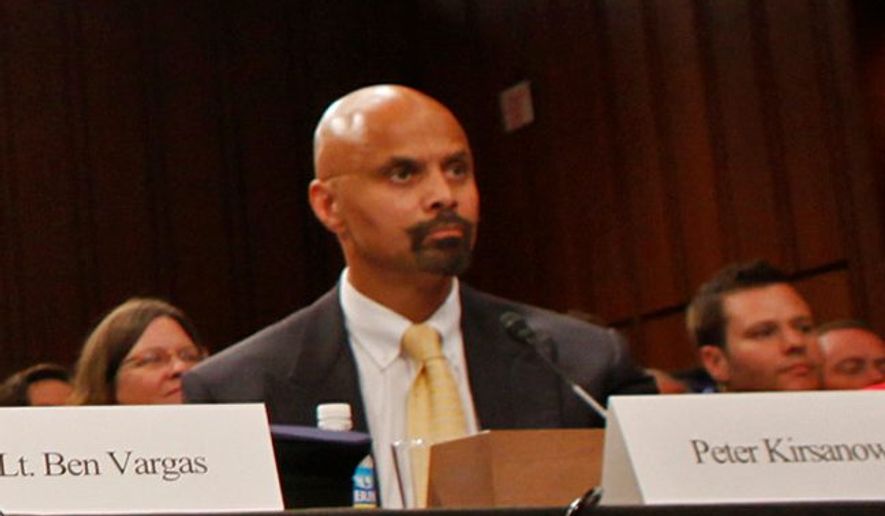A member of the U.S. Commission on Civil Rights asked census officials on Thursday to include a question about citizenship on the 2020 census forms, wading into a raging battle over the decision.
Peter Kirsanow, writing on his own, said asking about citizenship would help the government more precisely draw congressional seats and assist efforts to weed out noncitizen voters.
“It is not only important that votes not be diluted on racial grounds,” he wrote. “It is also important that all citizens in a state should have their votes weighted equally, and that the votes of citizens of different states should also have roughly the same weight. When noncitizens, particularly illegal aliens, are counted as citizens for purposes of apportionment, this goal is undermined.”
The Justice Department also has asked the Census Bureau to include a citizenship question on the upcoming count, saying prosecutors need the information to help enforce the Voting Rights Act.
Mr. Kirsanow said his thinking was “similar, but not identical.”
Whether the question is included or not, Mr. Kirsanow said, elected officials have a responsibility. He accused some unidentified elected officials of sometimes forgetting that they represent American citizens and predicted that Congress would lack the spine to make sure illegal immigrants didn’t swell population figures and create more seats.
Mr. Kirsanow acknowledged that the citizenship question wouldn’t identify those in the U.S. illegally, but he argued that if statistical analysis was employed, then Congress or a state could extrapolate the percentage of noncitizens within legislative districts.
“Even if the information is imperfect, it is better than no information at all,” he wrote.
The idea of a citizenship question has produced backlash from congressional Democrats. Sen. Dianne Feinstein, California Democrat, and four colleagues wrote to the Census Bureau this year in objection to such a query.
Asking about citizenship could have a “chilling effect” on the immigrant population regardless of status, Mrs. Feinstein wrote, and lead to inaccuracies in apportionment and in government funding tied to population figures.
Democratic attorneys general and dozens of immigrant rights and civil rights groups said the question would skew the count and hurt states with large immigrant populations.
The census does ask about citizenship on its rolling American Community Survey, which surveys a smaller population of the country each year, but doesn’t ask on the decennial count form that all Americans are to fill out.
Mr. Kirsanow, who was appointed to the civil rights commission by President George W. Bush and was seated only after a court battle, said he didn’t expect Congress to take the steps he believes are required because of the pushback.
“I realize that Congress is unlikely to act to exclude illegal aliens from apportionment, particularly because states that have a large number of illegal aliens would fiercely fight such a change for fear they might lose a congressional seat,” he said.
But he had more hope that states might act. He quoted the Nebraska Constitution, which says apportionment “shall be the population excluding aliens, as shown by the next preceding federal census.”
Mr. Kirsanow did not identify any organizations in his letter, but several have strongly objected to the concept since the Justice Department made its request. Immigrant communities would be hurt by shying away from census participation, they contend.
“With the Trump administration preying upon immigrant communities and stoking a xenophobic political climate, experts are worried that even fewer will participate in 2020,” wrote Brian Tashman, a political researcher and strategist for the American Civil Liberties Union. “Undercounting communities with large immigrant populations could mean weakened political representation, and the loss of millions of dollars in aid in areas like health, education and infrastructure.”
• James Varney can be reached at jvarney@washingtontimes.com.




Please read our comment policy before commenting.